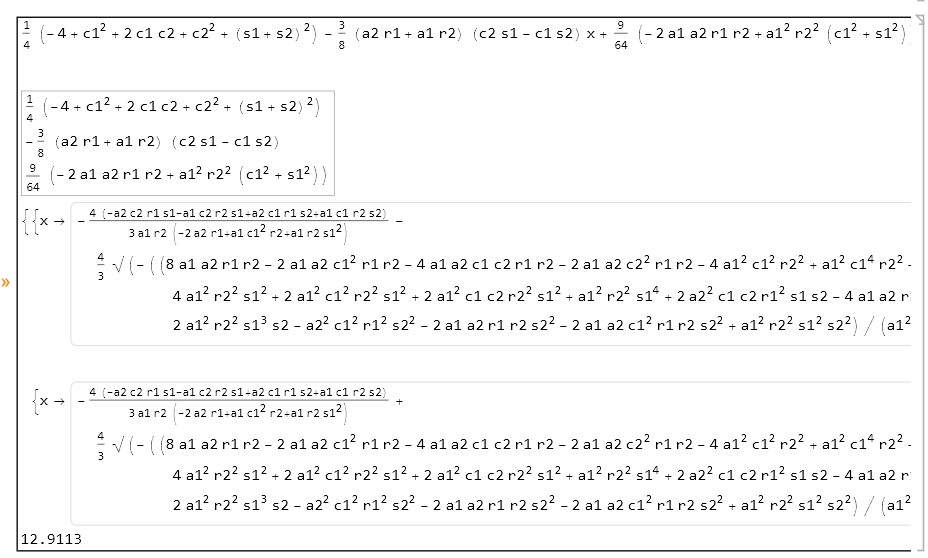Of course a trivial quadratic equation can be solved by Solve:
eqn = a1 + b1*x + c1*x^2;
cl = CoefficientList[eqn, x];
{time, sol} = AbsoluteTiming[Solve[eqn == 0, x, Reals]];
Echo[Column[{eqn, Column[cl, Frame -> Thin], sol, time}, Frame -> True]];

If you use some more complicated coefficients, the equation is still solved but takes pretty long (about 13 seconds on my machine). For me it's not understandable why it takes significantly longer. It's still a trivial quadratic equation. I assume the time is spent during simplification of the conditions.
eqn = (-4 + c1^2 + 2 c1*c2 + c2^2 + (s1 + s2)^2)/4 -
3/8*(a2*r1 + a1*r2)*(c2*s1 - c1*s2)*x +
9/64*(a1^2*r2^2*(c1^2 + s1^2) - 2*a1*a2*r1*r2 )*x^2;
cl = CoefficientList[eqn, x];
{time, sol} = AbsoluteTiming[Solve[eqn == 0, x, Reals]];
Echo[Column[{eqn, Column[cl, Frame -> Thin], sol, time}, Frame -> True]];

When you make a coefficient even more complicated (here an additional term (c1c2+s1s2) within the x^2-coefficient), Solve does not come to an end. At least not after two minutes on my machine. You have to abort the evaluation by Alt+"." or surround it by TimeConstrained.
eqn = (-4 + c1^2 + 2 c1*c2 + c2^2 + (s1 + s2)^2)/4 -
3/8*(a2*r1 + a1*r2)*(c2*s1 - c1*s2)*x +
9/64*(a1^2*r2^2*(c1^2 + s1^2) - 2*a1*a2*r1*r2 (c1*c2 + s1*s2))*x^2;
cl = CoefficientList[eqn, x];
{time, sol} = AbsoluteTiming[Solve[eqn == 0, x, Reals]];
Echo[Column[{eqn, Column[cl, Frame -> Thin], sol, time}, Frame -> True]];
(* .... $Aborted ...*)
Does anyone have an explanation for this strange behavior? And how to overcome it?
I've managed it by partially replacing the coefficients with new variables and then examining and interpreting the conditions myself. But this is quite involved and of course very specific to the concrete equation.